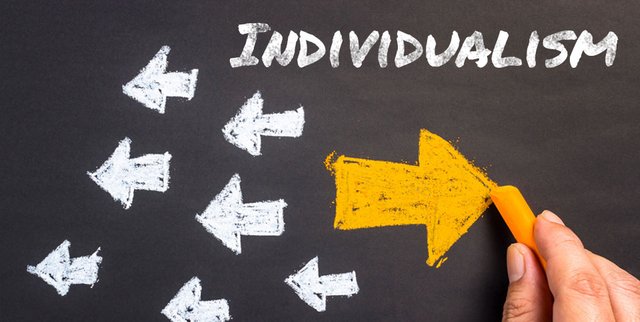The Reasonable Network
This article is my advice on how reasonable people can have a public discussion that is strong enough to avoid being derailed by trolls, no matter who they are. I believe the key is the conviction that if there were such a thing as a reasonable public discussion, everyone else would depend on the conclusions that it arrived at. Thus, everyone taking part in the discussion will tend to prefer to follow the rules over anything that might serve a conflicting interest.
If you are someone who prefers the Reasonable Network, then you are looking for people who also prefer the Reasonable Network. You must look at what they prefer and see that they prefer to be reasonable. You don’t need to bug him or manipulate him. You just have to let him show you that he prefers reason.
I am not going to define precisely what I think reasonableness is because I would want people to develop their reasonableness test based on everything they know rather than just what is in this article. However, I will say that I think that a person’s ability to repeat an intellectual position to his discussion partner is a test that is so easy to administer and evaluate, and simultaneously such a good indicator that I recommend it as the first step in any evaluation of another person’s reasonableness.
You, of course, don’t want to waste people’s time, especially your own, so I think you should be able to find the best one-sentence version of your position and look for people who appear to be capable of reporting your position back to you. He does not have to get everything right, but you should believe that he is interested in getting it right. I think it is good to let a person talk for a bit after you give them your test and see if they say anything on their own that shows that they have understood basic things about it. If they do not do this, I think that there is nothing wrong with asking them to repeat your position back to you, just to make sure they got it. Someone who is good at discussions may do this without being prompted because he knows he can’t possibly have a reasonable discussion without understanding the basics of the other person’s position.
No matter who you are and what you think, it is relatively easy to see whether someone can correctly repeat back what someone else said, if such an event were recorded publically. Furthermore, I think it is hard to argue that there is anything unfair about my reasonableness test and it is easy for you to argue publicly that someone has passed it. Remember, we are talking about a public discussion, so everything that is said should be something that can potentially have a lot of attention drawn on it. You want to be able to behave according to rules that you can defend later, in case anything that you do attracts attention. I believe that my reasonableness test is something that people with many divergent viewpoints could agree on, if they all wanted to have a reasonable discussion.
It is easy to show that someone has passed the test, but there are many reasons that someone might fail it. I would say that it is hard to show that someone has genuinely failed the test, or in other words, shown that they are uninterested in a reasonable discussion or unable to have one. Someone who does not pass the test is not necessarily someone who does not want a reasonable discussion. I think it is important to differentiate between people who cannot pass the test and people who simply have not. People can have many reasons to choose not to pass your reasonableness test. You must pass their reasonableness test at the same time as they are passing yours, so if you won’t say anything that demonstrates a grasp of whatever they have said to you, they might not bother to say anything. I think the reasonableness test should be based on what people have actually said in the current conversation and they should not expect one another to be familiar with who they are or their prior work as part of the reasonableness test. This ensures that both people are engaging with one another regardless of who they are.
On the other hand, someone who makes the same mistake several times in a row and who does not correct his version of your position after you have given him feedback about his response is someone who doesn’t want a reasonable discussion. If he failed because he is stupid, then you don’t need to talk to him anymore. If he failed because he is a troll, then you might see some variety and inventiveness in his failures. In that case, he is testing you to see how easily you can tell that he is a troll. I think it is ok, if you feel like it, to engage with trolls who have a sense of humor, but they should be doing at least something that you find entertaining, and if not, you should not let yourself respond to any of their lures.
A troll who is failing your test in a way that is a very obvious joke is telling you that there is something wrong with your reasonableness test. For example, let’s say that some ideology or religion has taken over your brain to the degree that you have forgotten how to evaluate other people for reasonableness, then a joke may be a way of drawing your attention to some way that you are excluding thinking people from your network. For example, perhaps your reasonableness test is too big. I think that you should not expect people to have to repeat more than a one-sentence version of your position, and if you are in an ideology or religion, it is often impossible to explain your position in one sentence.
On the other hand, in the event of an environment in which there is a lot of thought-control, in other words, there is social punishment for expressing certain ideas, then it may be necessary to prove that you are a troll before you can begin to assess another person’s reasonableness. You want to be talking to someone first who is able to play with social conventions and who is creative with the way that he expresses forbidden thoughts as jokes or in terms that are cryptic so that few will notice.
Someone who deliberately fails your test in a way that is not an obvious joke is a suspicious person.
There is a bootstrapping problem with the reasonableness network because you cannot reliably pick out reasonable people from a crowd. In a good network where people were genuinely reasonable, you would expect the most prominent people to be reasonable. Unfortunately, you cannot depend on this. I believe it is necessary to be able to pick out reasonable people from a crowd, independent of whether they are prominent.
In public, anyone can transmit anything and there can be very loud signals that do not contain a high originality. You must have something that filters people based on what you can see about them publicly, even if it is not a direct test of reasonableness. You, conversely, should want to be someone who is easily identified as someone who wants to have a reasonable discussion. So you need to transmit a signal that will attract reasonable people to you.
Since reasonable people cannot depend on having any shared ideas that will always stand out in a crowd, I think the best signal of reasonableness is the ability to stand out itself. You should be someone who can stand out in any crowd, not just the one you’re in. In other words, just be some kind of individual. In an environment in which there is a lot of ‘group-think’ and in which individuality is punished, it is easy to design a signal that goes against the crowd. You may have to endure some social punishment to transmit it, but you can try to come up with something that goes over most people’s heads. I think that you just need to believe that having a reasonable discussion is more important than the disapproval of people who don’t want one. I think it is ok if you just want to play some goofy character and you don’t show yourself directly. You just have to be an individual.
I would argue that the ability to go against the crowd is the purest signal of intelligence because it involves identifying a class of behaviors and abstracting something about it. If you are looking at a crowd that’s very unfamiliar to you, then someone who is going against the crowd is the signal that an intelligent person could make which would most easily stand out to you. If you are looking at a crowd and it appears that there are many individuals and you can’t tell who the best contrarian is, then that is a sign that you are looking at a crowd of intelligent people who are able to have a reasonable discussion. If a crowd appears to be many people moving together, then a contrarian among them should be easy to identify.
A connection in the reasonable network is valuable because once it exists, it is not easy to replace. Thus, you must be someone who can identify signals of reasonableness and maintain good relationships with such signals, no matter where you see them. The only thing that keeps you in the reasonable network is your ability to be reasonable. You have to learn to prefer rational discussions to feeling like you have won the argument or to feeling like you want to be a celebrity, or from whatever other motivation you might have for engaging in the discussion.
In the reasonable network, there is nothing wrong with the existence of celebrities or with wanting to be a celebrity or any kind of important person that you want. It is necessary to withhold judgment somewhat about celebrities whom you have not interacted with. If you do talk to any, you need to get your own sense of how reasonable they really are. The best way to become a celebrity in the reasonable network is to show people that you prefer reasonableness over being personally important.
I think that someone who were to think about the problem that I have attempted to solve here would come up with a roughly similar solution. Therefore, I think that the reasonable network exists already. In fact, it exists everywhere, throughout all ages in history. You just have to find it.
Steps for finding the reasonable network:
Express individuality (may require trolling)
Prefer other people who are expressing individuality when you open discussions.
Prefer what you learn from other people you know who have passed your reasonableness test to what you learn from anyone who transmits information without interacting with you.
People you have not met but who appear to be able to pass the reasonableness test publicly should be preferred as sources of information over those who do not.
What do you think about having a public conversation strong enough to derail trolls? Let us know what you think about this subject in the comment section below.
Keep steeming
@parrotmouth




@Parrotmouth, thank you for using the naijapidgin tag.
We encourage and support minnows.
Join us on discord: https://discord.gg/5SR8CH4 for more fun and to submit your posts for curation.
You like what we are doing and would like to support us? Join our trail here: https://steemauto.com/dash.php?i=15&id=1&user=naijapidgin
Congratulations! This post has been upvoted from the communal account, @minnowsupport, by parrotmouth from the Minnow Support Project. It's a witness project run by aggroed, ausbitbank, teamsteem, theprophet0, someguy123, neoxian, followbtcnews, and netuoso. The goal is to help Steemit grow by supporting Minnows. Please find us at the Peace, Abundance, and Liberty Network (PALnet) Discord Channel. It's a completely public and open space to all members of the Steemit community who voluntarily choose to be there.
If you would like to delegate to the Minnow Support Project you can do so by clicking on the following links: 50SP, 100SP, 250SP, 500SP, 1000SP, 5000SP.
Be sure to leave at least 50SP undelegated on your account.